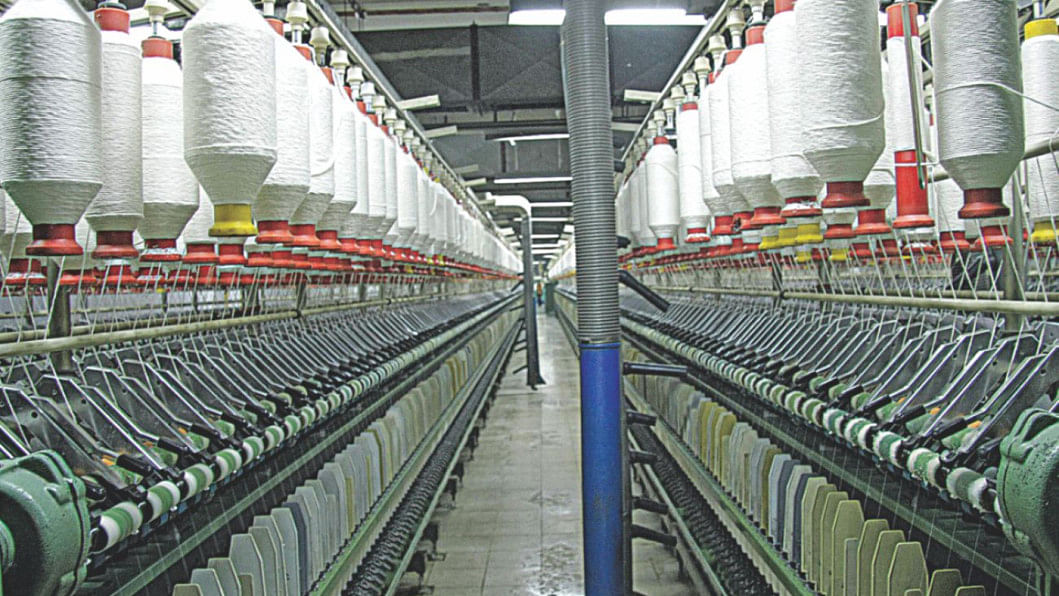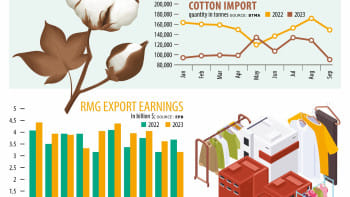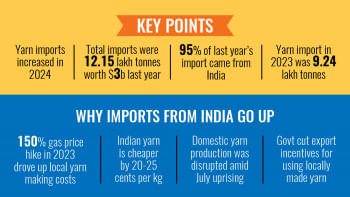Govt may ban yarn imports through land ports

The government may stop yarn imports through land ports in consideration of the greater interests of the local textile and spinning sector, Commerce Secretary Mahbubur Rahman said yesterday.
This has been a long-standing demand from entrepreneurs in the spinning and textile sectors, who met high-ups of the commerce ministry yesterday and reiterated their request, he said.
"So, the ministry will consider the matter further and may take a decision within the next week. However, yarn imports through seaports will continue as usual," Rahman said.
Textile millers say the domestic yarn sector is struggling to survive as significant quantities of the fibre are being smuggled through these ports
At the meeting, textile millers urged the government to stop yarn imports through land ports, saying the domestic yarn sector is struggling to survive as significant quantities of the fibre are being smuggled through these ports.
However, the leaders of the Bangladesh Garment Manufacturers and Exporters Association and the Bangladesh Knitwear Manufacturers and Exporters Association requested that yarn imports through land ports continue.
Currently, yarn imports from India are allowed through seaports and four land ports—Benapole, Sonamasjid, Bhomra, and Banglabandha.
The government allowed the import of yarn through these ports in January 2023 to meet the sudden rise in demand for fibre after the Covid-19 pandemic.
After the meeting, Bangladesh Textile Mills Association President Showkat Aziz Russell said it takes only two weeks to import yarn from India through seaports, making it a more convenient option.
When yarn is imported through land ports, which lack testing facilities, importers and exporters take advantage of misdeclaration, he said. For example, importers open letters of credit (LCs) to import two tonnes of goods but end up importing more than 10 tonnes, he added.
Russell also said that yarn worth around Tk 10,000 crore is currently stockpiled in mills as India has been dumping yarn at lower prices.

 For all latest news, follow The Daily Star's Google News channel.
For all latest news, follow The Daily Star's Google News channel. 





Comments